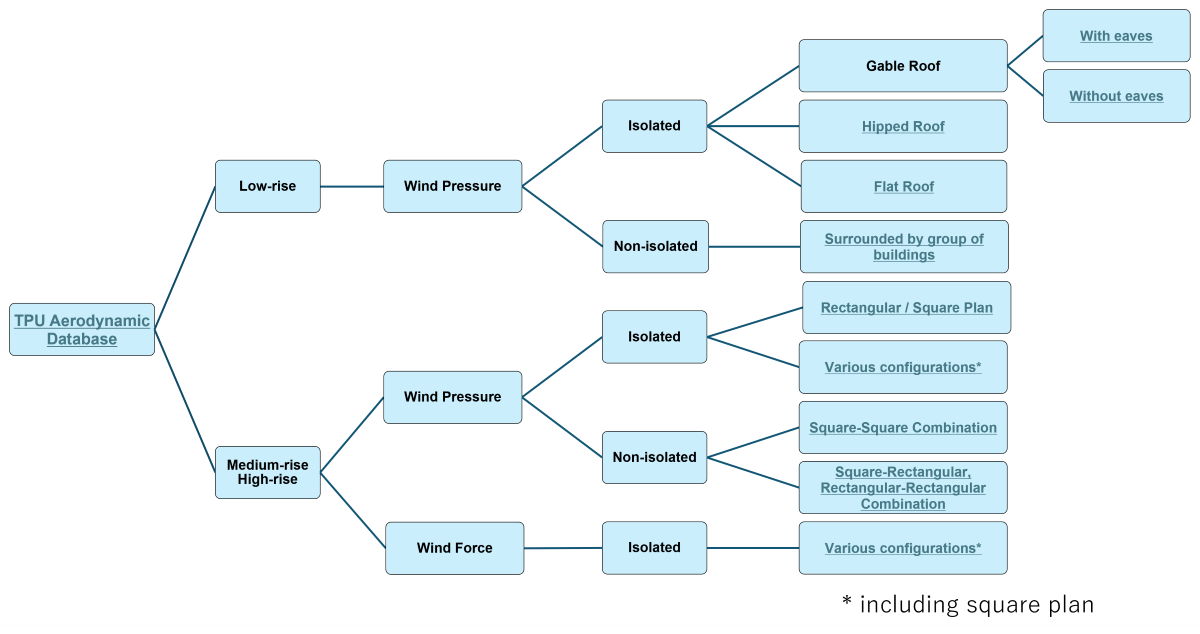Tree of TPU Aerodynamic Database

Wind Pressure
High-rise Buildings with Rectangular/Square Plan
- Isolated
High-rise Buildings with Various Configurations
- Isolated
- Same volume (\( 10^6\mathrm{m}^3 \) in fullscale) and same height (400m in fullscale) [except for opening model]
- Aspect ratio = 8 (square model)
Two Adjacent High-rise Buildings with Square Plan
- Interference effects
Two Adjacent High-rise Buildings with Rectangular plan
- Interference effects
Low-rise Buildings with Rectangular/Square Plan (without eaves)
- Isolated
Low-rise Buildings with Rectangular/Square Plan (with Eaves)
- Isolated
Low-rise Buildings with Rectangular Plan Surrounded by Buildings (without eaves)
- Shielded effects
Wind Force
High-rise Buildings with Various Configurations
- Isolated
About Database
For those who use the database
References
When you use the TPU Aerodynamic Database, please refer from the followings:
<The URL of the TPU Aerodynamic Database. Please indicate the year you referred to.>
(1) TPU (Tokyo Polytechnic University) Aerodynamic Database, YEAR, https://db.wind.arch.t-kougei.ac.jp/
< TPU Aerodynamic Databases are introduced.>
(2) TPU aerodynamic database for low-rise buildings, Quan, Y., Tamura, Y., Matsui, M., Cao, S.Y., Yoshida, A., Proceedings of the 12th International Conference on Wind Engineering (ICWE12), Vol.2, Cairns, Australia, pp.1615-1622, 2007
(3) Y. Tamura, 2009, Wind and tall buildings, Keynote Lecture, The 5th Europe-African Regional Conference on Wind Engineering (EACWE5), Florence, Italy, 19th-23rd July, 2009, pp.25.
Contact
Contact address
If you have any question, please contact us by e-mail.
Administrator
Prof. Akihito Yoshida (yoshida@t-kougei.ac.jp)
Vice-administrator
Prof. Yong Chul Kim (kimyc@t-kougei.ac.jp)
Wind Engineering Research Center
Tokyo Polytechnic University
5-45-1, Iiyama-Minami, Atsugi, Kanagawa, Japan, 243-0297
Basically '.mat' files can be operated in Matlab. Alternatively they can also be operated using GNU Octave (free software).
